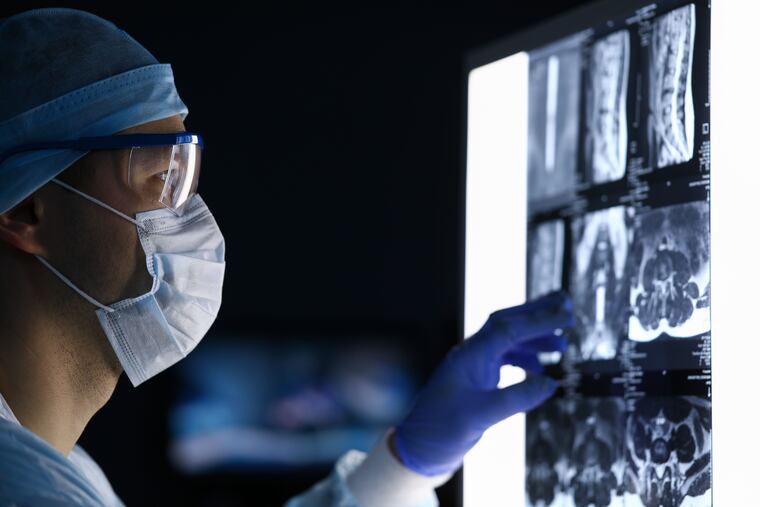What to know about kidney cancer and advancement in treatment | Expert Opinion
Kidneys are the sixth leading site of new cancer cases for men and ninth for women.

Did you know that all the blood in your body passes through your kidneys about 40 times a day? It’s a hard-working organ.
Kidneys are bean-shaped organs about the size of a fist that sit below your rib cage on either side of the spine. The kidneys’ job is to strain out the toxins in your blood such as waste materials, extra fluids, and chemicals. Blood enters the kidneys dirty and exits clean, circulating back to your heart with the proper balance of salt, water, and minerals.
They are the sixth leading site of new cancer cases for men and ninth for women, with an estimated 81,800 people expected to be diagnosed with kidney cancer this year. Yet most people who have kidney cancer don’t know it.
» READ MORE: Most kidney tumors are detected by tests for something else. It happened to Gov. Phil Murphy.
There isn’t a screening protocol for kidney cancer as there is for breast, prostate, and colon cancers. However, with the increased use of ultrasounds, CAT scans, and MRIs over the last 30 years to diagnose problems such as herniated discs, spinal stenosis, and gallstones, the kidneys have come into clearer focus. As a result, we are finding kidney lesions earlier and more often.
The historical triad of symptoms for kidney cancer — pain in the upper abdomen or back, a lump in the side or back, or blood in the urine — are rare these days because we are finding the cancer sooner. That’s good because these symptoms generally show up at a late-stage diagnosis, when the cancer is harder to treat.
If you ever notice blood in your urine, see your doctor immediately. If another type of exam identifies a kidney lesion, seek expert help from a urologic oncologist.
Treatment for kidney cancer is also evolving. Immunotherapy, for instance, is a breakthrough discovery that uses our body’s natural defenses to battle cancer, the way our immune system fights off other illnesses.
Our immune system is supposed to tell the difference between normal healthy cells and foreign cells such as germs and cancers. But cancer cells have found a way to trick our bodies into thinking they are normal by depositing a unique protein that disguises them from the immune system and protects them from attack.
However, powerful new medications, approved for the first time in 2015 to treat kidney cancer, attack the protein deposited by the cancer cell, remove it, and make the cancer cell recognizable to our immune systems again.
Surgical interventions also have dramatically improved the treatment of kidney cancer. For example, using minimally invasive surgery techniques, we can perform partial nephrectomies, which remove only part of a diseased kidney, rather than a radical nephrectomy, which removes the entire kidney.
For the patient, this means a shorter recovery time, a shorter hospital stay, smaller incisions, less blood loss, fewer post-operative complications, and saving as many nephrons (normal kidney filtering units) as possible.
Chemotherapy and radiation, common in treating other types of cancer, are no longer used to treat kidney cancer. We’ve learned they are not effective on these types of cancer cells.
The cause of most kidney cancers is unknown, but we do know about some risk factors, such as smoking and obesity.
While the treatments we are developing for kidney cancer are revolutionary, it’s a tried-and-true approach to prevention that we take. My recommendation to all my patients is a heart-healthy diet, which involves eating more fruits and vegetables, and limiting convenience and processed foods — groceries from the center aisles that come in cans, bottles, and boxes.
And if you have high blood pressure or diabetes, focus on managing these conditions.
David Cahn is a specialist in urologic oncology with MidLantic Urology.